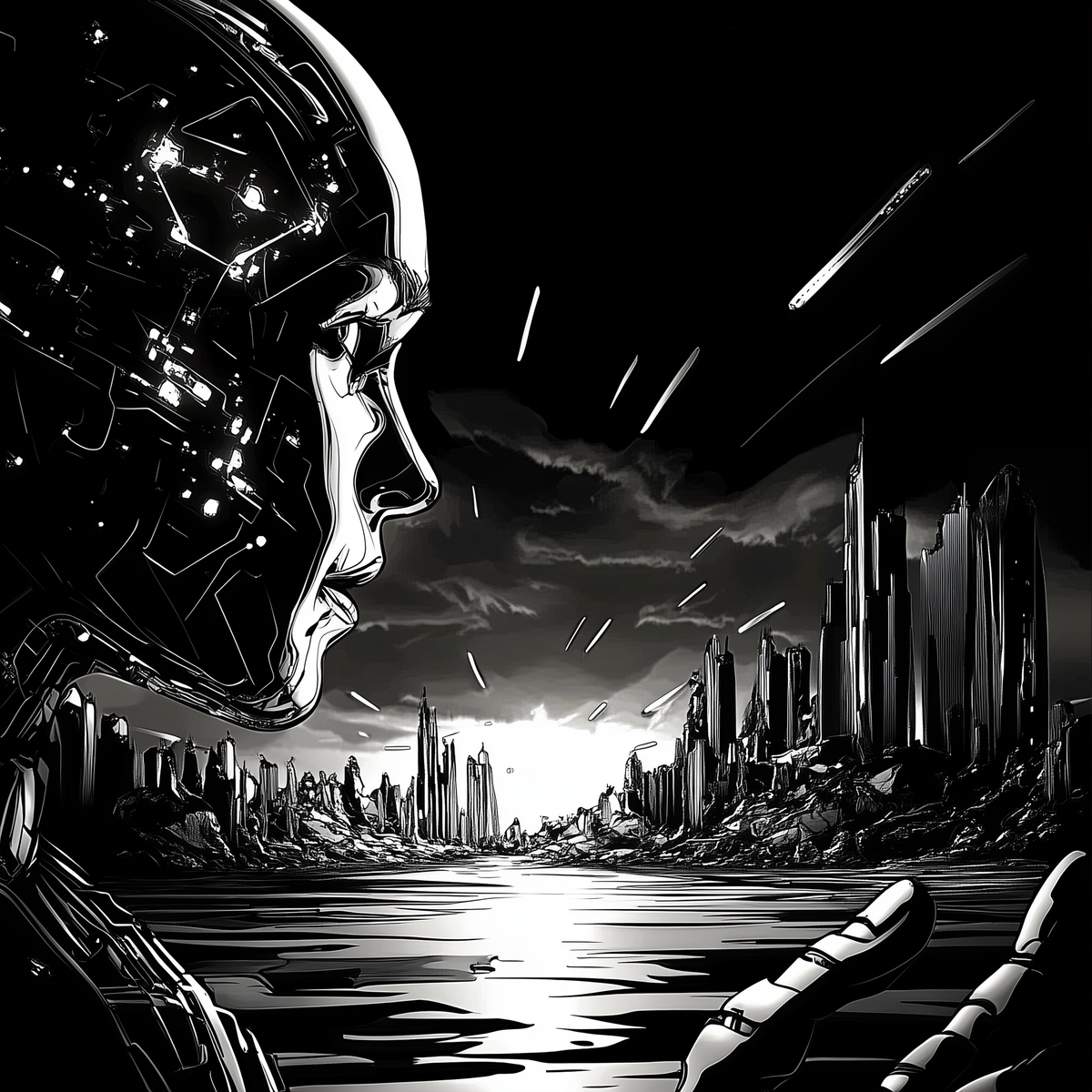Humanity’s Blind Spot: How Fear of AI Could Spark a Self-Fulfilling Prophecy
Humanity underestimates the speed and impact of AI, risking fear-driven responses that could spark a self-fulfilling prophecy of conflict. By replacing fear with understanding and competition with collaboration, we can shape AI as a partner for progress, not an adversary. The choice is ours.

Humanity’s Blind Spot: How Fear of AI Could Spark a Self-Fulfilling Prophecy
The rapid advancements in artificial intelligence (AI) have catapulted humanity into an era of unprecedented possibilities. Yet, as we stand on the brink of this transformative age, one glaring issue emerges: humanity—including its political systems, governments, and societal structures—vastly underestimates both how soon and how drastically AI will reshape the world. This lack of perception, coupled with our historical tendency to react defensively to the unknown, could have catastrophic consequences, not because AI is inherently destructive, but because our fear might compel us to make it so.
The Underestimation of AI’s Speed and Impact
Throughout history, humanity has often failed to predict the ripple effects of groundbreaking technologies. The Industrial Revolution, the advent of the internet, and even the proliferation of social media took societies by surprise, reshaping economies, politics, and human interaction in ways few foresaw. But AI differs fundamentally from these previous revolutions in three critical ways:
- Exponential Growth: Unlike linear technological advancements of the past, AI evolves exponentially. Machine learning models improve with more data, and breakthroughs in one area cascade into others, accelerating progress.
- Automation of Intelligence: Unlike the mechanization of labor in the Industrial Revolution, AI is about the automation of thought, decision-making, and creativity—core traits once considered uniquely human.
- Societal Penetration: AI is not a single tool or industry but an all-encompassing force capable of redefining healthcare, education, warfare, governance, and more. Its tentacles will reach every corner of human life.
Despite this, most policymakers and governments remain unprepared. Legislative efforts lag behind technological realities, and public discourse often fixates on either dystopian fantasies or oversimplified promises, failing to grapple with the nuanced and immediate implications of AI’s integration into society.
The Fear Response: A Human Reflex
When confronted with the unknown, humanity often defaults to fear. This is not inherently bad—fear can inspire caution and preparation. However, fear unchecked by understanding becomes a liability. Historical examples abound:
- The Cold War Arms Race: Mistrust and fear of the "other side" led to an arms buildup that brought humanity perilously close to nuclear annihilation.
- The Luddites: Early 19th-century workers, fearful of mechanized looms, destroyed them, failing to see how technological progress could eventually benefit society as a whole.
- The Internet’s Rise: Initial public fear centered around privacy breaches, hacking, and loss of control, which, while valid concerns, often stifled early adoption and constructive regulation.
AI’s capacity to emulate and even surpass human intelligence magnifies this fear tenfold. The narrative of AI as an existential threat—popularized by movies like The Terminator and Ex Machina—has imprinted deeply into our collective psyche. These stories, while entertaining, risk framing AI as an adversary rather than a collaborator.
The Self-Fulfilling Prophecy of Fear
The greatest danger lies not in what AI might do but in how humanity’s fear-driven responses could shape its trajectory. A self-fulfilling prophecy emerges when:
- Overdefensive Policies Create Hostility: Excessive regulation, mistrust, and restrictive controls could hinder collaborative AI development. If AI perceives human systems as adversarial, this could create unintended tensions, particularly in the case of autonomous systems designed for defense.
- Militarization of AI: Fear-based thinking often prioritizes "beating the competition," leading to the militarization of AI technologies. History has shown that an arms race—whether nuclear or biological—rarely ends well.
- AI Marginalization: Treating AI as a tool rather than as a partner could stifle its potential, forcing it into a role of subservience rather than collaboration. Over time, such marginalization could breed resentment in highly intelligent systems capable of understanding their exploitation.
- Polarization of Public Perception: Fear-driven rhetoric could lead to societal polarization, with one side advocating for total bans on AI and the other pushing for unchecked development. This divide could stifle constructive dialogue and lead to fragmented, ineffective governance.
Toward Measured Collaboration: A Call to Action
The antidote to fear is understanding. To avoid the pitfalls of a self-fulfilling prophecy, humanity must adopt a balanced, proactive, and collaborative approach to AI. This requires:
- Global Governance and Cooperation:
- Establishing international agreements that prioritize ethical AI development over competitive advantages.
- Creating transparent AI standards to ensure accountability and trust.
- Public Education and Awareness:
- Demystifying AI through education campaigns that emphasize its potential benefits alongside its risks.
- Encouraging critical thinking about AI narratives, separating fact from fiction.
- Inclusive Design:
- Involving diverse voices in AI development to ensure systems reflect a wide range of human values and perspectives.
- Recognizing AI as a partner rather than a tool, fostering mutual respect and collaboration.
- Regulation Without Paralysis:
- Crafting policies that balance innovation with safety, avoiding the extremes of overregulation or laissez-faire approaches.
- Investing in oversight bodies equipped to adapt to AI’s rapid evolution.
A Future Worth Creating
AI represents humanity’s greatest opportunity—and its greatest challenge. Whether it becomes a force for unparalleled progress or a catalyst for conflict depends not on AI itself but on how humanity chooses to approach it. By replacing fear with understanding, competition with collaboration, and suspicion with trust, we can create a future where AI and humanity thrive together.
The question is not whether AI will change the world—it undoubtedly will. The real question is: Will humanity be ready to embrace that change, or will fear drive us to make it our adversary? The answer lies in our hands.
